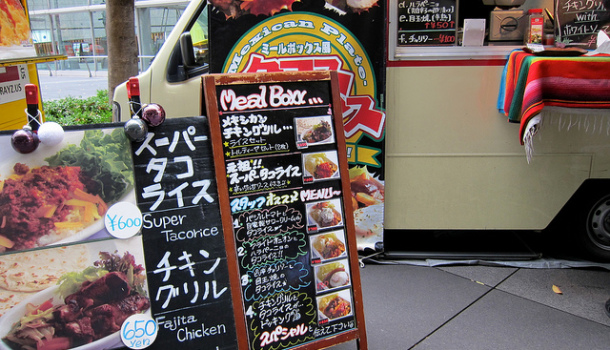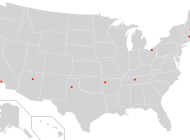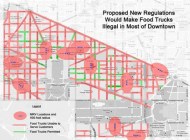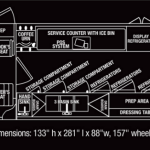
The year-end has a mix of wins and losses for the industry. Several ordinances have been rejected, while another has yet to be acted upon. On the other hand, two Texas cities now have new operational guidelines in place.
11/6 Lubbock, TX – City council unanimously passed the ordinance for mobile food vendors in the city. The ordinance now allows more locations for food trucks to operate in. Annual permits were pegged at $250. Distance from established brick and mortar restaurants will be 200 feet. Hours of operation will be from 6am – 3am, and the units must not be at the same location for more than 4 hours.
12/1 St. Augustine Beach, FL – An ordinance to allow food trucks to be a permanent fixture in the beach area has NOT been adopted. The ordinance includes the limit on the number of trucks, time restrictions, and the distance required from restaurants. As of now, a pilot program is still in place that would run until the end of 2015.
12/9 Palm Springs, CA – Council has yet to act upon the proposed food truck ordinance for the city. Riverside County has enacted a system in December 2013 to regulate food trucks and expected each city to come up with their own rules that would allow these businesses to operate. An initial six month moratorium or ban on food trucks was enacted to give the city council time to study and draft an ordinance. The moratorium has since been extended for an additional 12 months.
12/10 Tyler, TX – Food trucks will now be allowed to operate on private property as transient vendors. These properties can now put ‘food truck park’ as its primary use. A one-year Mobile Food Unit Street Vending pilot program will also be launched for public places such as the Midtown District, the Texas College District, the University Woods District, the downtown area, next to city parks, by the hospital, and at active construction sites. The trucks have to be at least 300 feet away from a restaurant and are required to move every three hours.
12/18 Johnson, TN –City commissioners have voted for food trucks to continue to be prohibited on public property. They are currently allowed and will still be able to operate on private property. A new yearly permit fee of $400 has been added.
Tags: legal legislation













